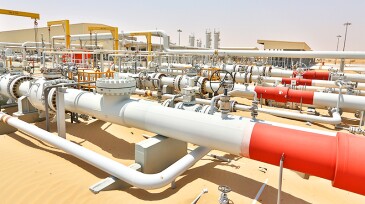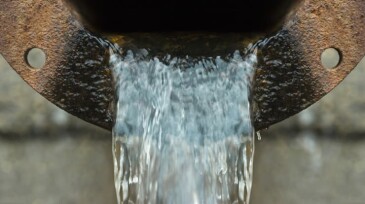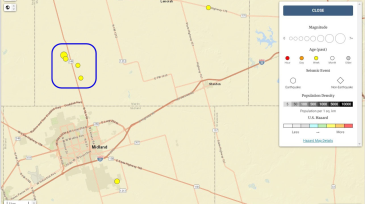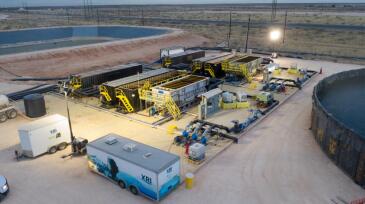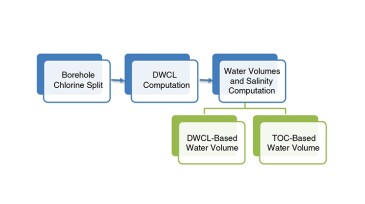Water management
This paper describes a decision-support system that integrates field data, system specifications, and simulation tools to quantify system performance, forecast operational challenges, and evaluate the effect of system modifications in water management.
If there is a key takeaway as 2025 comes to a close, it is the new level of diligence and depth in water-management planning, along with a growing recognition of the need to invest in more complex methods and sophisticated technologies.
This paper demonstrates that high-purity salts of calcium, magnesium, strontium, sodium, and lithium can be recovered from produced-water brine using a chemical-reaction pathway followed by vacuum-driven crystallization and a lithium-extraction process.
-
The Court of Appeals for the Eighth District of Texas ruled that the mineral lessee under an oil and gas lease owns the water extracted, not the surface property owner.
-
Sustaining two of the UAE’s biggest onshore fields will require hundreds of kilometers of new pipelines that are to be powered using 100% renewable energy.
-
Select Water Solutions will focus on water management and added assets in the Permian Basin.
-
The recent Permian Basin earthquakes in Texas are keeping producers, regulators, and service providers busy in their quest to reduce the intensity and frequency of the induced seismic events.
-
A town in the oil industry’s shadow grapples with health fears as the state fails to limit companies’ use of fresh water.
-
Before 2012, water management for unconventional oil and gas plays was in its infancy and was trying to keep up with operations. Today, many of the initial challenges have been resolved but new challenges persist. What does the future hold for water in the US onshore unconventional plays?
-
The Railroad Commission of Texas is inspecting injection wells in the Gardendale Seismic Response Area where a magnitude 5.3 earthquake and multiple aftershocks struck.
-
The Evolution Pipeline System will help to mitigate Permian Basin seismicity through produced water recycling and diversion of produced water from areas of high seismicity.
-
This paper provides a work flow based on research in two methodologies to estimate formation-water salinity, enhancing the quality of saturation evaluation for quick decision-making during logging operations.
-
This paper presents field cases of a rigless wireline logging technique that accurately locates sources of water production in cased wells with standalone sand screens in an offshore field in the Caspian Sea.





